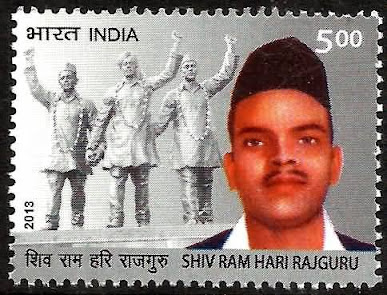World Meteorological Day was established in 1961 to commemorate the World Meteorological Organization creation on 23 March 1950. This organization announces a slogan for World Meteorology Day every year, and this day is celebrated in all member countries.
The World Meteorological Organisation (WMO), an organization of the United Nations, was created on 23 March 1950 to replace the International Meteorological Organization. It began operations in 1951 to coordinate member nation in the fields of meteorology, operational hydrology, and Earth sciences for the security of their population. The first World Meteorological Day was held on 23 March 1961.
The 2024 theme is At the Frontline of Climate Action
To search for any particular day use the search this blog option on the rigth hand side of the screen
23 March - World Meteorological Day
23 March - Shivaram Hari Rajguru death anniversary
24 August is the birth anniversary of the great revolutionary Shivaram Hari Rajguru who was an accomplice of Bhagat Singh and Sukhdev. He died for the country at an age when most youths dream of careers.
Shivaram Hari Rajguru (24 August 1908 – 23 March 1931) was an Indian revolutionary from Maharashtra, known mainly for his involvement in the assassination of a British Raj police officer. He also fought for the independence of India and On 23 March 1931 he was hanged by the British government along with Bhagat Singh and Sukhdev Thapar.
23 March - Ram Manohar Lohia born 1910
Ram Manohar Lohia (23 March 1910 – 12 October 1967) was an activist in the Indian independence movement and a socialist political leader.During the last phase of British rule in India, he worked with the Congress Radio which was broadcast secretly from various places in Bombay until 1942.
23 March - Goldfinger Novel published
Goldfinger is the seventh novel in Ian Fleming's James Bond series. Written in January and February 1958, it was first published in the UK by Jonathan Cape on 23 March 1959. The story centres on the investigation by the British Secret Service operative James Bond into the gold smuggling activities of Auric Goldfinger, who is also suspected by MI6 of being connected to SMERSH, the Soviet counter-intelligence organisation. As well as establishing the background to the smuggling operation, Bond uncovers a much larger plot: Goldfinger plans to steal the gold reserves of the United States from Fort Knox.
Fleming developed the James Bond character in Goldfinger, presenting him as a more complex individual than in the previous novels, and bringing out a theme of Bond as a St George figure. This theme is echoed by the fact that it is a British agent sorting out an American problem. In common with his other Bond stories, Fleming used the names of people he knew, or knew of, throughout his story, including the book's eponymous villain, who was named after the architect Ernő Goldfinger. On learning of the use of his name, Goldfinger threatened to sue, before the matter was settled out of court. Auric Goldfinger is obsessed by gold and—to Bond's eye—a gauche individual with unusual appetites; Fleming probably based the character on the American gold tycoon Charles W. Engelhard Jr. Fleming also used his own experiences within the book; the round of golf played with Goldfinger was based on a 1957 tournament at the Berkshire Golf Club in which Fleming partnered Peter Thomson, the winner of The Open Championship.
On its release, Goldfinger went to the top of the best-seller lists; the novel was broadly well received by the critics and was favourably compared to the works of the thriller writers H. C. McNeile and John Buchan. Goldfinger was serialised as a daily story and as a comic strip in the Daily Express, before it became the third James Bond feature film of the Eon Productions series, released in 1964 and starring Sean Connery as Bond. In 2010 Goldfinger was adapted for BBC Radio with Toby Stephens as Bond and Sir Ian McKellen as Goldfinger.



